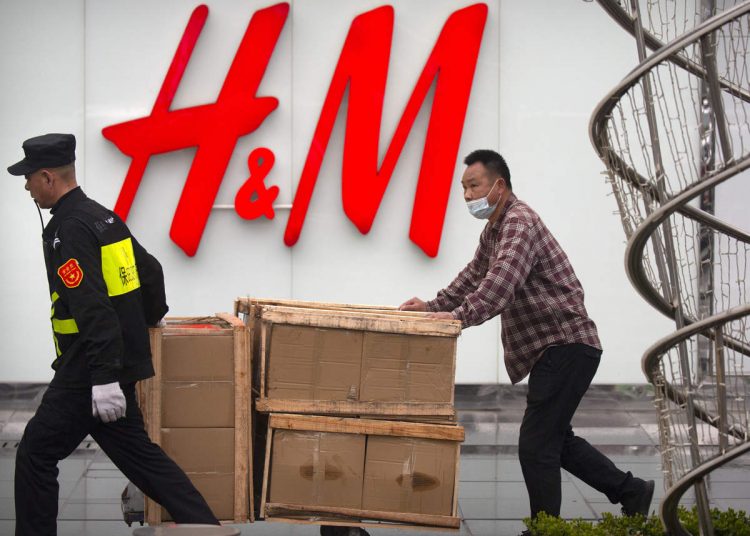H&M products were missing from major e-commerce platforms including Alibaba and JD.com following calls by state media for a boycott over the Swedish retailer’s decision to stop buying cotton from Xinjiang. That hurts H&M’s ability to reach customers in a country where more than a fifth of shopping is online.
Shockwaves spread to other brands as dozens of celebrities called off endorsement deals with Nike, Adidas, Burberry, Uniqlo and Lacoste after state media criticized the brands for expressing concern about Xinjiang.
Brands are struggling to respond to pressure abroad to distance themselves from abuses without triggering Chinese retaliation and losing access to one of the biggest and fastest-growing markets. That pressure is rising as human rights activists are lobbying sponsors to pull out of the Beijing Winter Olympics planned for February 2022.
Tencent, which operates games and the popular WeChat message service, announced it was removing Burberry-designed costumes from a popular mobile phone game.
In a high-tech version of the airbrushing used by China and other authoritarian regimes to delete political enemies from historic photos, H&M’s approximately 500 stores in China didn’t show up on ride-hailing app Didi Chuxing or map services…


























































